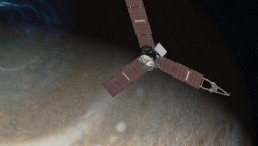A highly sophisticated new type of drug test can tell if a person has taken cocaine by analyzing chemical traces left behind by their fingerprint, scientists say. Researchers from both Britain and the Netherlands developed this new technique, which they believe could offer a useful alternative to current methods of blood, saliva or urine testing. Their findings were published in the scientific journal Analyst.
The test uses a technique known as mass spectrometry to detect chemicals produced by the body after a person takes the drug. The scientists say it can tell the difference between a person who has actually taken cocaine and someone who just happened to touch it.
For the results, researchers used different types of an analytical chemistry technique to analyze the fingerprints of patients attending drug treatment services. They tested the prints against more commonly used saliva samples to determine if the two tests correlated.
"When someone has taken cocaine, they excrete traces of benzoylecgonine and methylecgonine as they metabolize the drug, and these chemical indicators are present in fingerprint residue," the lead author of the study, Dr. Melanie Bailey from the University of Surrey says.
"We sprayed a beam of solvent onto the fingerprint slide to determine if these substances were present."
This isn't the first fingerprint test to be developed. However, while previous fingerprint tests have employed similar methods, they have only been able to show whether a person had touched cocaine, not if they had actually taken the drug.
"The beauty of this method is that not only is it non-invasive and more hygienic than testing blood or saliva, it cannot be faked," Bailey says. By the very nature of the test, the identity of the subject is captured within the fingerprint ridge detail itself, he added.
Law enforcement officials have been interested in easy roadside tests for drug use. For several years companies have advertised planned devices that use sweat to test for drugs. A breath test for detecting marijuana use was recently developed at Washington State University has shown promise. But police officials way they want the tests to be more reliable before deploying them.
Scientists hope this latest fingerprint test could lead to the creation of simple and portable tests perfect for law enforcement agencies to use within the next decade. Indeed, if these tests prove to be as accurate as they hope, they could be deployed in a much wider fashion in both law enforcement and businesses that drug test.




![Sat-Nav in Space: Best Route Between Two Worlds Calculated Using 'Knot Theory' [Study]](https://1721181113.rsc.cdn77.org/data/thumbs/full/53194/89/56/50/40/sat-nav-in-space-best-route-between-two-worlds-calculated-using-knot-theory-study.png)









